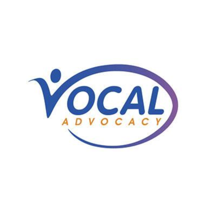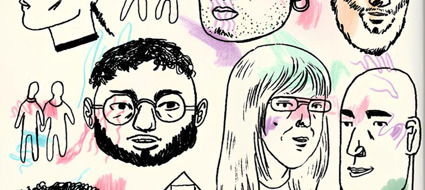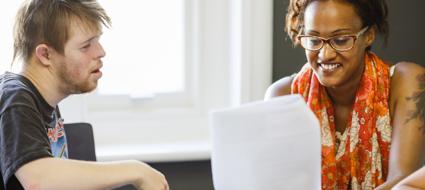The invite list is already two pages long, do we really need an advocate too?
I often get asked what is it that you advocates actually ‘do’ in safeguarding?
Vocal Advocacy is a small independent charity providing advocacy since 1993. We work with our partners - adults who have a learning disability and communication difficulties - in South and West Devon. This could be in relation to the Care Act 2014, general advocacy or child protection processes.
We aren’t the police with the power to imprison perpetrators nor are we social workers with the authority to provide additional support. I suppose if we judge ‘doing’ on this, then honestly, we don’t ‘do’ a lot. But what an advocate does do makes a big difference to our partners.
We don’t allow safeguarding to be a ‘process’ with our partner left waiting to hear about how they will be kept safe. They know everything we know, as soon as we know it. If something is difficult to understand, we don’t avoid telling our partner, we work to make it understandable.
We make sure our partner knows what the mysterious ‘safeguarding’ is and why they are ‘under it’. We support them to take their rightful place at the head of their safeguarding table. I mean, would you want to turn up to a meeting with ten people you don’t know and be asked if you have any questions, when truthfully your question is ‘who is everyone?’ or ‘why is everyone so worried?’.
We support our partner to understand their rights and choices, and I mean all their choices, not just the ‘good ones’. What if everyone else leaves the meeting feeling positive except the person we are all there for? What if they have an idea about how to stay safe but nobody asks?
My advocate was a real star. Not only did the situation get resolved, I realised I really felt that she took my concerns into consideration and supported me all the way through.
Vocal Advocacy partner
As advocates, our role is to scaffold our partner with the knowledge, understanding and confidence to say what they truly think, feel and want. We work to remove the fear of speaking out and make an agreement with our partner that we won’t stop until their voice is as loud as all others. It would be unfair and untrue to say we’re alone in our quest to do the best job we can. In fact, I’ve yet to meet another professional in safeguarding that isn’t there to do their absolute best. The difference with an advocate’s ‘best job’ is we can only say we’ve done it when our partner agrees.
As an organisation, our role is simple but impactful, we give our partner the support to recognise and use their own power. In the financial year 2023 to 2024, Vocal Advocacy supported 801 people, up from 379 the year before and every year this is increasing with new funding and projects.
Our team meetings aren’t focused on the organisation, we challenge each other on what else we could be doing for the people we support and how we really know we’re doing our best.
As advocates, our role is to support and represent people to exercise their rights and to make their views known about things that matter in their lives. Vocal Advocacy works to the National Development Team for Inclusion Advocacy Charter and we have received a Quality Performance Mark for advocacy.
We have had positive feedback from many social workers about how advocacy has made a real difference to their client’s lives:
The advocate worked in such a personable way with the client. She took the time to get to know him and made his wishes extremely clear to me. She has been a great resource when conversing with the care provider.
Social worker
The place for advocacy is firmly rooted right next to our partner and we stay there, often long after all others have left. Our role is a crucial one to make sure people’s voices are heard and that what they say is given the weight it deserves, as the expert in their own life.




